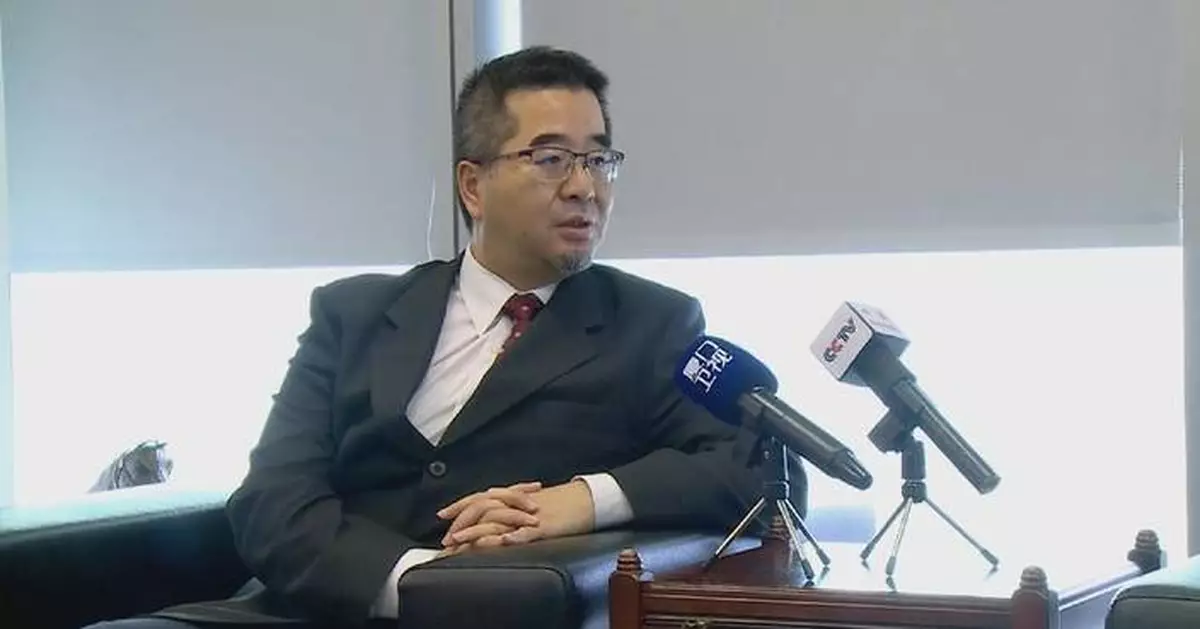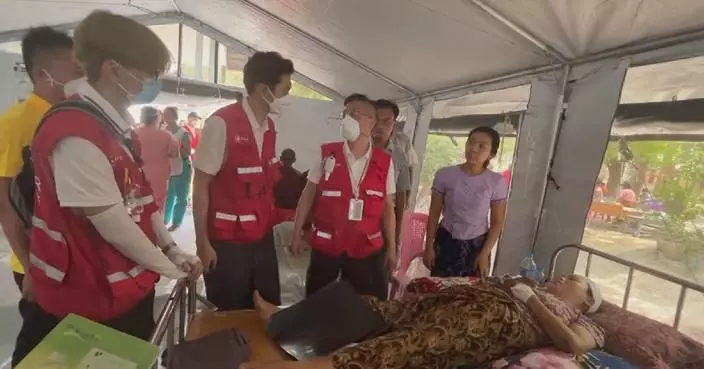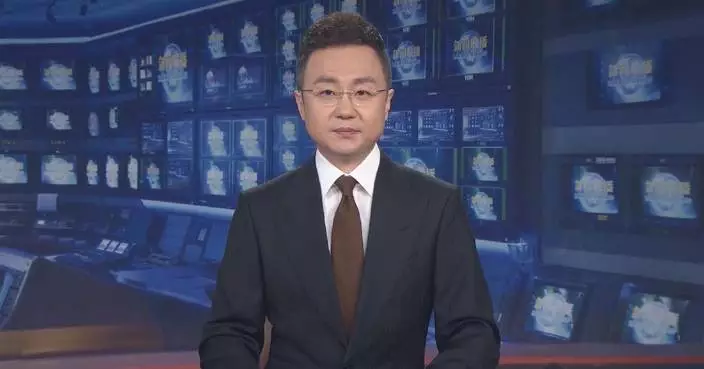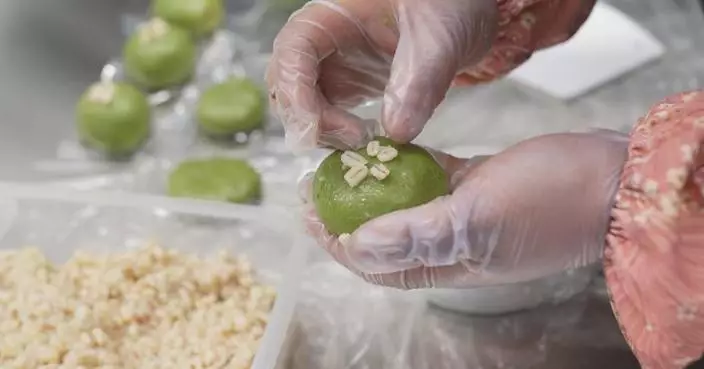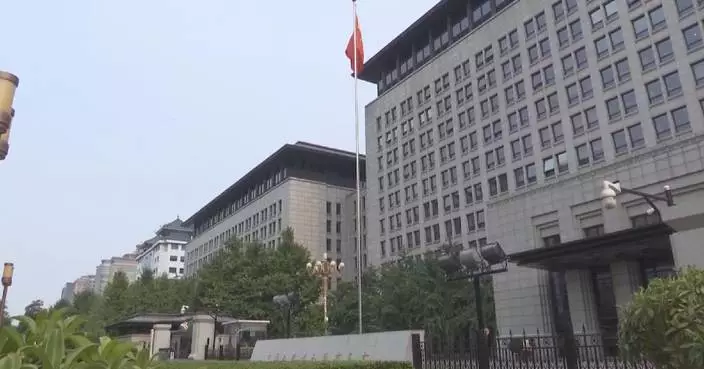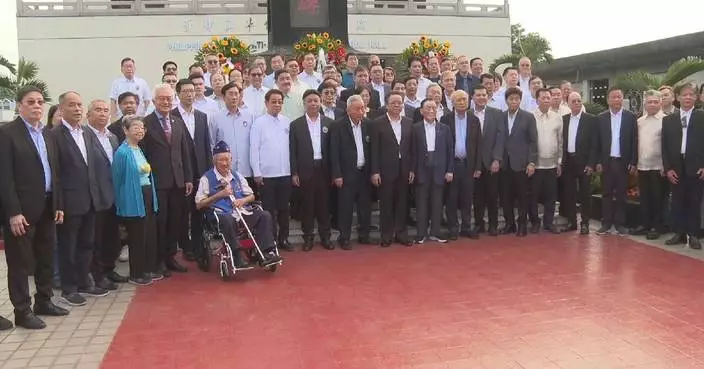Taiwan-based Ma Ying-jeou Culture and Education Foundation announced on Monday that it plans to invite 40 faculty members and students from seven mainland universities to visit the island, following a successful visit of mainland college students in 2023.
According to Hsiao Hsu-tsen, executive director of the foundation, the visit is scheduled to take place from Nov 27 for nine days and eight nights. The mainland students and teachers will be from Peking University, Tsinghua University, Fudan University, Sun Yat-sen University, Zhejiang University, Fujian Normal University and Beijing Sport University. The students will include Olympic champions, table tennis gold medalist Ma Long from Beijing Sport University, and shooting gold medalist Yang Qian from Tsinghua University.
They will visit six universities in Taiwan, including Taiwan University, Tsing Hua University in Hsinchu, Chengchi University, Yang Ming Chiao Tung University, Chinese Culture University in Taiwan, and Chang Gung University, as well as the Taipei Municipal Zhongshan Girls High School, Hsiao added.
"This time, we have also invited Olympic men's table tennis champion Ma Long, who is popular on both sides of the Taiwan Strait, as well as Olympic women's shooting champion Yang Qian. I hope they will interact and exchange with students in Taiwan during the nine-day and eight-night visit," said Hsiao.
Hsiao also said that the foundation will submit applications to relevant authorities and hopes for swift approval to facilitate the visit.
"Without exchanges at various levels, there will be fewer opportunities for mutual understanding between the two sides of the Strait, which could result in unnecessary misunderstandings. We urge the Democratic Progressive Party (DPP) to be more confident and open, rather than retrogressing and isolating both sides of the Strait through political maneuvering," said the executive director.
In addition, the itinerary will also include visits to scenic spots such as Sun Moon Lake so that mainland students will have an in-depth understanding of Taiwan's history and natural beauty. The foundation will also arrange baseball experience activities for mainland visitors, allowing them to engage firsthand with Taiwan's popular baseball culture.
This is the second such visit planned by the foundation. In 2023, faculty members and students from five mainland universities were warmly received across Taiwan, positively impacting cross-Strait relations.
In 2023 and 2024, Ma Ying-jeou, former chairman of the Chinese Kuomintang party, also led youth groups from Taiwan on visits to the mainland.
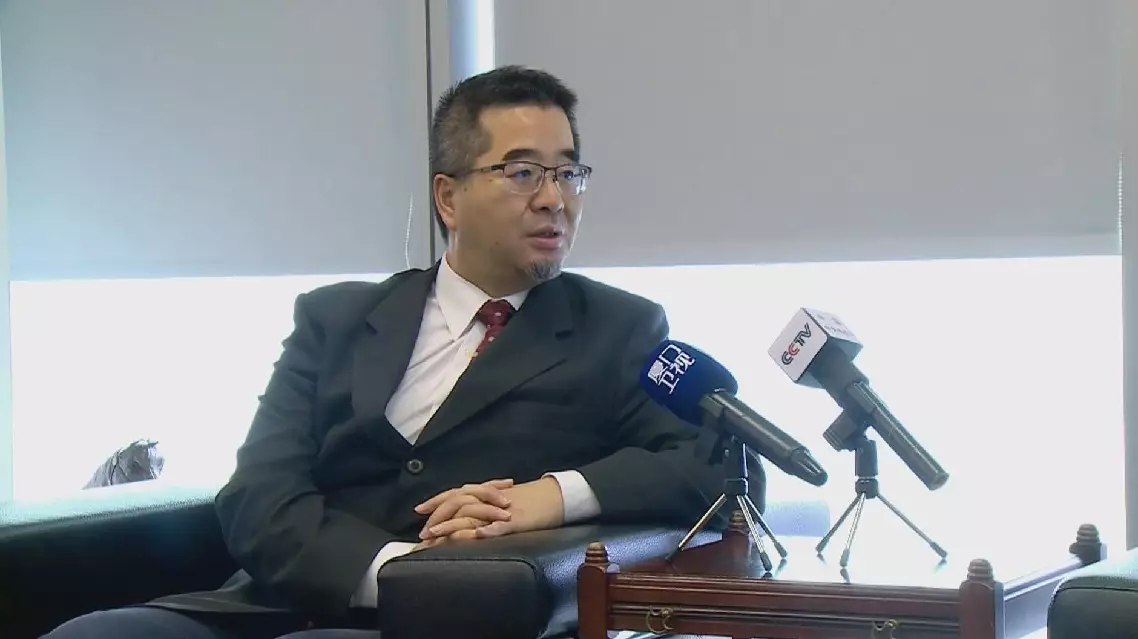
Ma Ying-jeou foundation invites mainland college students to visit Taiwan
As the Qingming Festival approaches this Friday, various traditional folk activities have been held across China, celebrating the rich cultural heritage of the occasion.
With a 2,500-year history, Qingming Festival, or the Festival of Pure Brightness, observed in early April, uniquely combines ancestral worship with the celebration of spring. Falling on the 15th day after the spring equinox, this ritual-rich observance reflects China's enduring values of ancestral veneration and inspires deep introspection about what gives life meaning.
In Sijia Village, Huayin City, northwest China’s Shaanxi Province, a unique swing festival is held to mark the occasion. Eighteen different types of traditional swings, such as the spinning wheel swing, the Bagua swing reminiscent of a rotating carousel, and the balance swing designed for two people, have attracted many visitors.
Historically, Sijia Village served as a military post guarding the strategic Tongguan pass, a former mountain pass and fortress located south of the confluence of the Wei and Yellow Rivers. The swing tradition in the village has its origins in military training exercises like climbing and river crossing. The local swing culture further developed as regional trade flourished, eventually evolving into the "swing festival" that continues today.
"It's very exciting and tests your skill, endurance, and most importantly, your arm strength. You need to maintain balance," said Qu Xiangyang, a visitor.
In Rudong County, Nantong City, east China's Jiangsu Province, another traditional Qingming activity takes place - kite flying.
Flying kites as a way of making wishes is an age-old Qingming custom in this region. As a result, the Qingming Festival in Nantong is also known as the "Kite Festival."
The local Banyao whistling kite making skills is listed as one of the first national intangible cultural heritage items.
According to a folk culture expert, people traditionally write the names of diseases or misfortunes on paper, attach it to a kite, and release it into the sky. This practice is believed to drive away illness and disaster, while also serving as a way to make wishes.
In south China's Guangdong Province, a large tug-of-war competition is underway in Maoming City. Teams from different towns and streets are competing, attracting many locals to cheer on their teams.
Tug-of-war, which originated during the late Spring and Autumn period (770 BC - 476 BC), became part of Qingming customs during the Tang Dynasty (618-907). Emperor Xuanzong of the Tang Dynasty once organized large-scale tug-of-war competitions for the festival.
"Tug-of-war became very popular in the Tang Dynasty, even emerging as the national sport. It originated in the Jingchu region and later spread across the country. In ancient Lingnan (Southern China), tug-of-war games were a common tradition. Through these events, people seek to pray for peace, prosperity, and abundant harvests," said Yao Guojun, vice dean of the College of Arts and Law, Guangdong University of Petrochemical Technology.
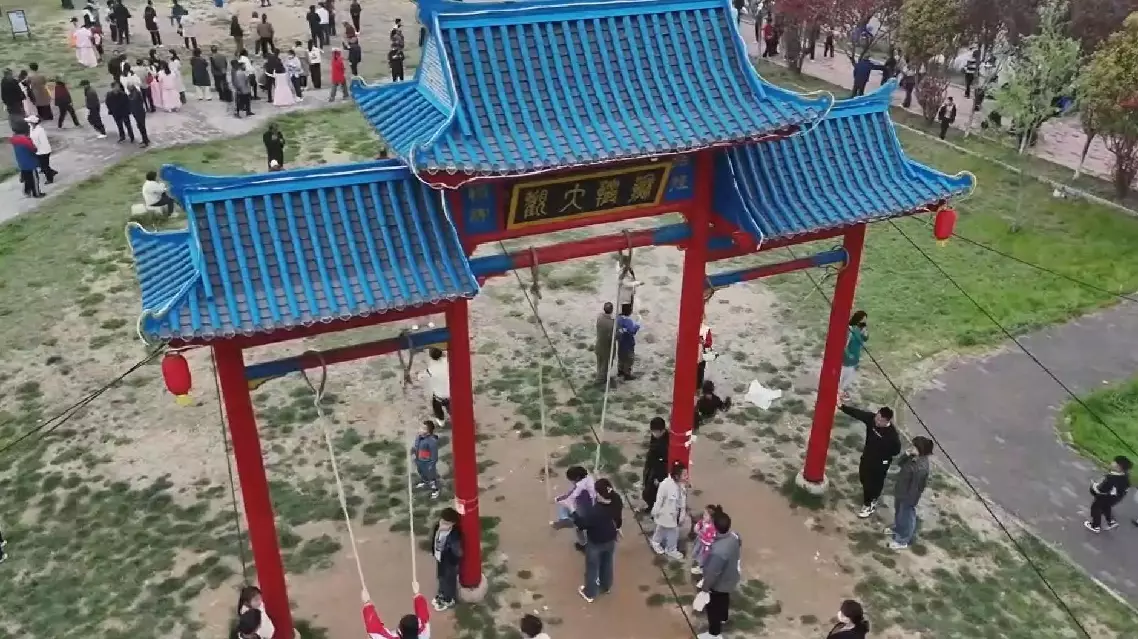
Traditional folk activities held for Qingming Festival



